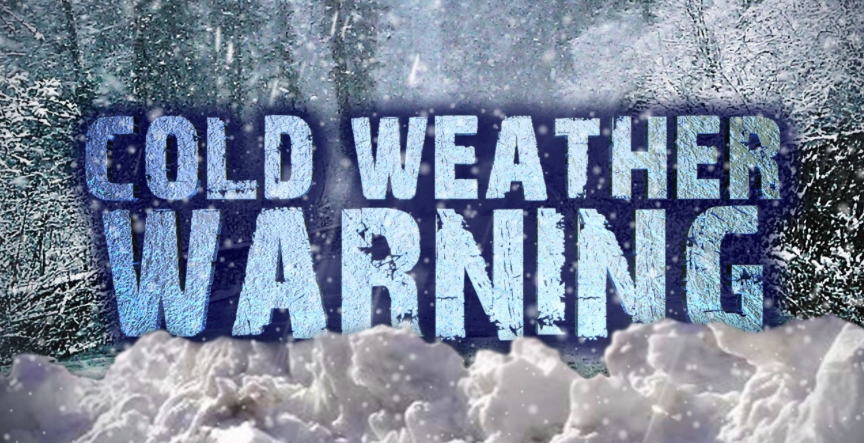ST. JOHNSBURY — The National Weather Service has issued a Wind Chill Warning for Orleans County starting Thursday afternoon into Friday morning.
According to a statement issued by the National Weather Service, wind chills in the area could reach as low as 35 below zero. These temperatures have the potential to pose a danger to health and property.
The Coldest wind chill values are expected to occur between 10 p.m. Thursday evening and 8 a.m. Friday morning.
Hypothermia, frostbite, and other hazards are a concern in these conditions and precautions are advised to ensure the safety of individuals and property.
Please note the following actions and take any steps necessary to keep yourself and your family safe.
Limit time outdoors:
Minimize outside activities, particularly the elderly and very young. Also, consider your pets and limit their time outdoors.
Dress warmly and stay dry:
Wear several layers of loose-fitting, lightweight clothing, rather than a single layer of heavy clothing. Wear a hat, mittens, and sturdy waterproof boots, protecting your extremities. Keep babies and older adults dry and in warm rooms.
Eat and drink healthy:
Well balanced meals help you stay warmer. Drink warm fluids to maintain a healthy temperature. Alcohol and caffeinated beverages cause you to lose heat more rapidly.
Avoid hypothermia and frostbite:
Symptoms of frostbite include a loss of feeling and a pale appearance in extremities, such as fingers, toes, ear lobes or the tip of the nose. Hypothermia signs include shivering, exhaustion, slurred speech and in infants, bright red, cold skin. If symptoms are detected, seek medical help immediately and get to a warm place. Slowly warm the affected areas as you await medical assistance.
Have sufficient heating “fuel” for your home:
Check your heating supply, whether it’s oil, propane, wood, wood chips, etc. If you need information on heating assistance you can dial 2-1-1.
Heat safely:
If you lose your primary heat source, use only safe alternate sources like a fireplace, wood stove or space heater and ensure they are ventilating properly.
Ventilate to prevent carbon monoxide poisoning:
If you use a generator, ensure it is used outside, away from open windows, doors or air intakes. Exhaust from a generator or a heating source can cause a buildup of Carbon Monoxide (CO) in the home. Carbon monoxide is a deadly, colorless, odorless, poisonous gas. CO poisoning can mimic flu-like symptoms such as headaches, dizziness, nausea, and fatigue.
Higher levels of exposure result in disorientation, drowsiness, unconsciousness and death. If you experience these symptoms leave the home and contact help. Test smoke alarms and Carbon Monoxide (CO) detectors.
Be a good neighbor:
Check on older or disabled relatives, friends and neighbors to make sure they are keeping warm safely.
Be prepared:
Have a well-stocked Winter Home Emergency Supply Kit that includes flashlights, portable radio, extra batteries, a first aid kit, bottled water and non-perishable food.
Make sure your car is properly winterized:
Keep the gas tank at least half-full. Carry a Winter Emergency Car Kit in the trunk including blankets, extra clothing, flashlight with spare batteries, a can and waterproof matches to melt snow for drinking water, non-perishable foods, windshields scraper, shovel, sand, towrope and jumper cables.

